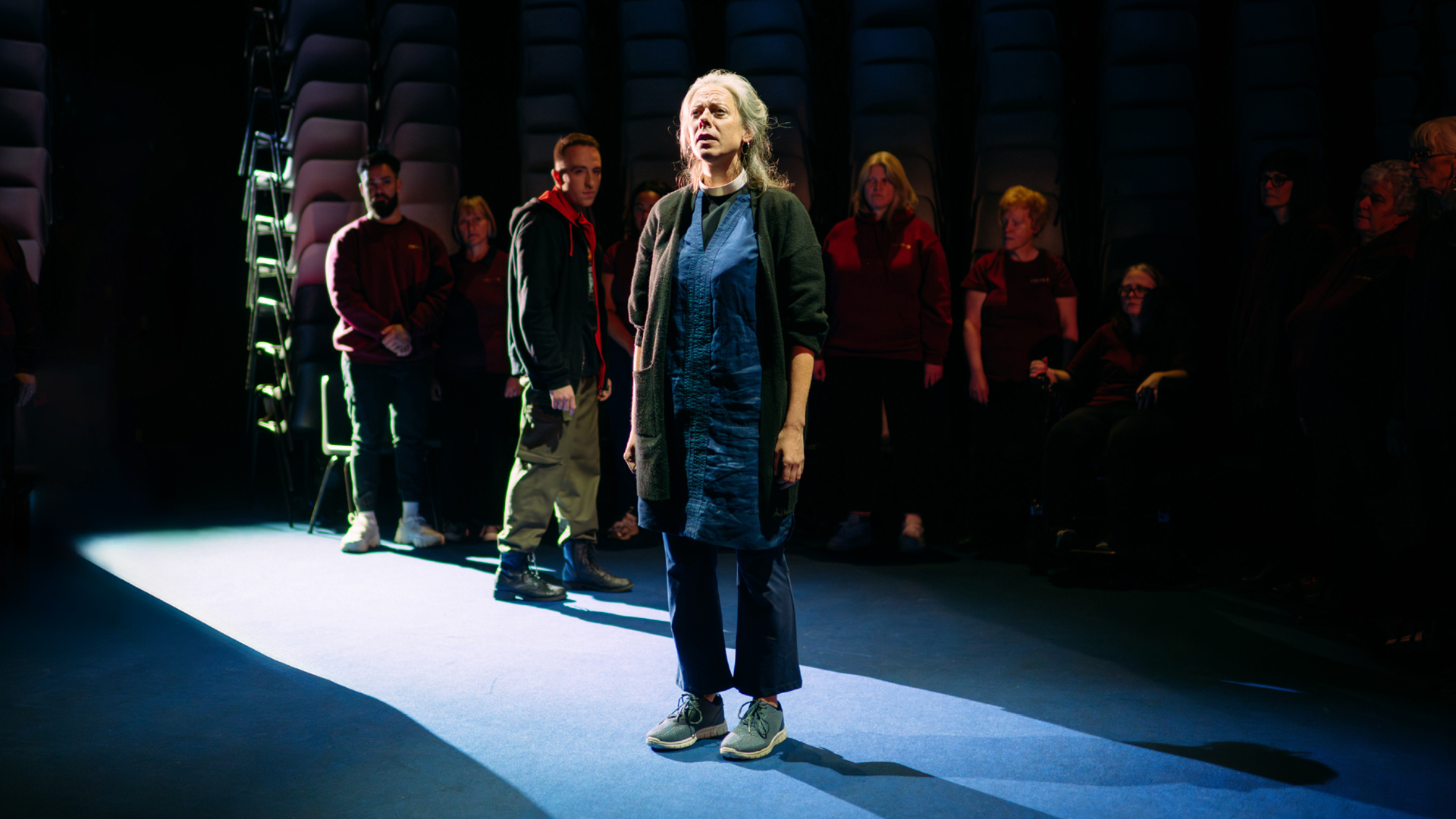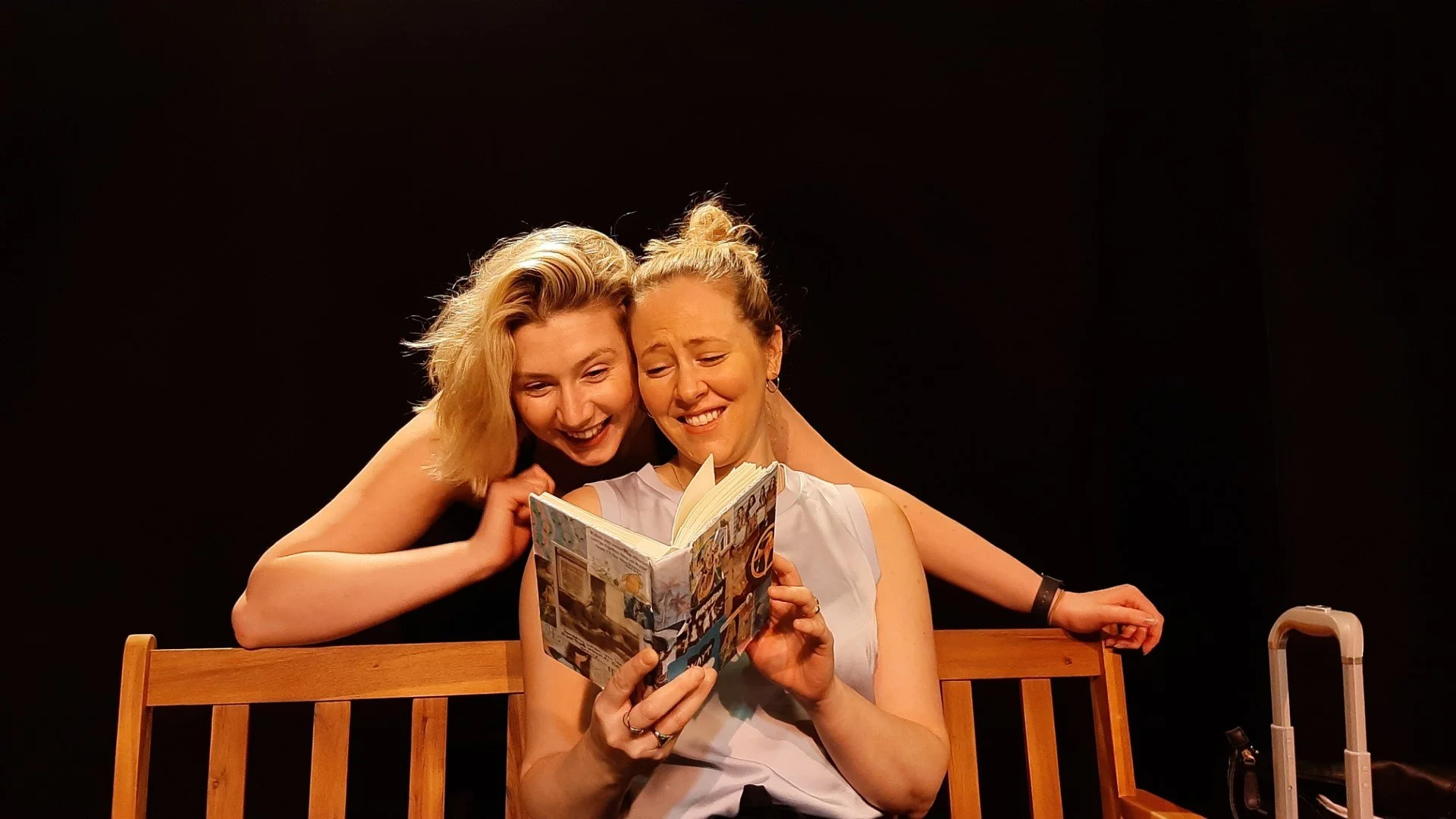Crocodile Fever at Arcola Theatre Review
Written by Ziwen for Theatre & Tonic
Disclaimer: Gifted tickets in exchange for an honest review
This production features strong language, references to domestic and sexual abuse, graphic violence, use of imitation firearms, abundant fake blood and gore, simulated excessive alcohol consumption, sound effects of firearms and explosives and smoke from prop cigarettes
After making its debut at Edinburgh’s Traverse Theatre in 2019, Crocodile Fever, written by Meghan Tyler, who also stars as Fianna, and directed by Mehmet Ergen, has now found its way to London’s Arcola Theatre. Despite its ambitious premise and darkly comic potential, the production ultimately falls short of its promise, offering a story that feels far more compelling in concept than in execution.
Set in a farmhouse in Northern Ireland during the 1980s, the story begins as a noise outside interrupts Alannah (Rachael Rooney), who is meticulously scrubbing the stove with a toothbrush. Instead of responding, she chooses to lock the door tighter. Just as Alannah thinks the disturbance has passed, a stone shatters the kitchen window, and a young woman of about her age climbs through, it is her sister Fianna (Meghan Tyler). Ten years earlier, Fianna was sent to prison for setting fire to their home and killing their mother, and this is the sisters’ first meeting since her release. Through their tense conversation, the audience gradually learns that both sisters suffered abuse at the hands of their father, though Alannah still feels a sense of duty to care for him. As their paralysed father’s voice calls down from upstairs, the truth of what happened a decade ago slowly begins to surface, revealing that the past was far more complicated than it first appeared.
As soon as I entered the theatre, a cosy corner of a small home unfolded before my eyes. I especially appreciated Merve Yörük’s attention to detail, even though the characters may never use them: the plates neatly placed in the cupboard, the gloves hanging beside the sink, and the apples and eggs stored in the refrigerator. These small touches made the compact space feel all the more real. Even the portrait of the sisters’ late mother, placed quietly in a corner of the stage, somehow kept drawing my attention. For most of the play, the lighting (Richard Williamson) was a dim yellow - the kind of warm glow that comes from a household light bulb. Occasionally, the lights would flicker suddenly, heightening the sense of unease. In one scene, the two sisters play Africa and Tony Bennett’s You’ll Never Get Away from Me (Benjamin Grant) on a recorder. When they start singing together, the emotional distance between them suddenly narrows. I particularly loved the moment when Alannah mistakes “Africa” for “apricots”, that bit of dialogue felt especially natural and genuine.
From her behaviour, it’s clear that Alannah has obsessive-compulsive disorder, and portraying that balance convincingly is quite challenging. Unfortunately, Rooney’s performance feels somewhat exaggerated. Watching her walk almost at right angles, or chop vegetables with a very specific rhythm, makes it hard for me to believe in the authenticity of the character. Moreover, Alannah rarely fastens the security chain, the dirt left on the stove that she chooses to ignore, and the way she goes straight to slicing bread right after cleaning the floor all suggest that the screenwriter may not have a solid understanding of OCD. Tyler’s Fianna comes across as carefree and seemingly indifferent, yet there’s a trace of vulnerability beneath the surface. If the actor can let the audience could better sense the source of that vulnerability, the character would feel much more multidimensional. Stephen Kennedy’s performance does succeed in conveying the unpleasantness of his character, but it still doesn’t quite convince me that he is the father of the two girls. Throughout the play, the moments when the sisters unwind after playfully bickering feel the most natural and comfortable.
In fact, Crocodile Fever is a story with great potential for deeper exploration. The idea of two sisters who develop into polar opposite personalities under the pressure of a distorted family background is inherently fascinating. The focus of this work should have been on the problems rooted in their original family and the awkward yet genuine bond between the sisters. However, these aspects are only touched on superficially. Good dialogue can keep the audience engaged while revealing character traits, even if it doesn’t seem to drive the plot forward. But in Crocodile Fever, much of the conversation feels filled with unnecessary information, making a play of less than two hours feel somewhat lengthy. This is, after all, the sisters’ first meeting in ten years. There’s so much they could express and so much they don’t know how to express, their dialogue shouldn’t feel the way it does now. In addition, the play seems to attempt to create impact through absurdity, but this actually undermines its sense of realism. Overall, Crocodile Fever could have been a more compelling story, but for now, it still falls short of that goal.
Crocodile Fever runs at Arcola Theatre until 22nd November 2025
★★
















